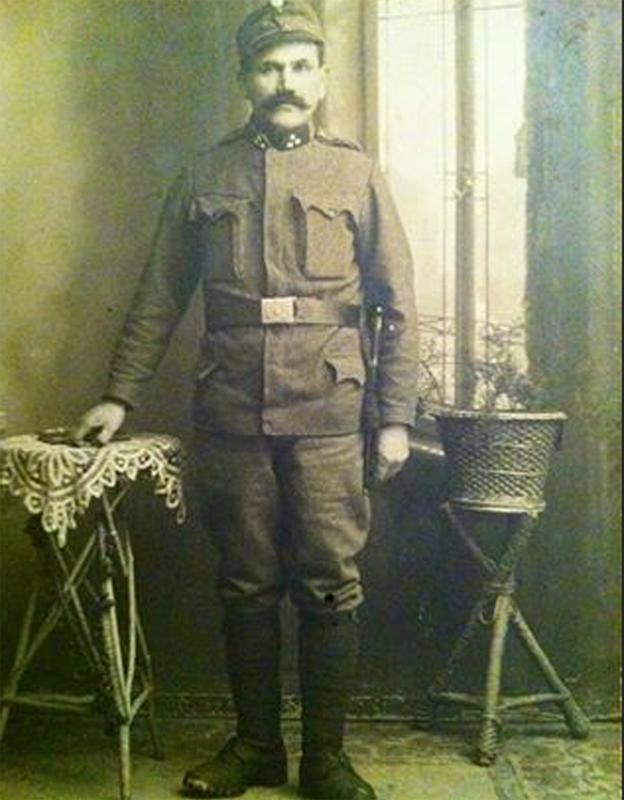
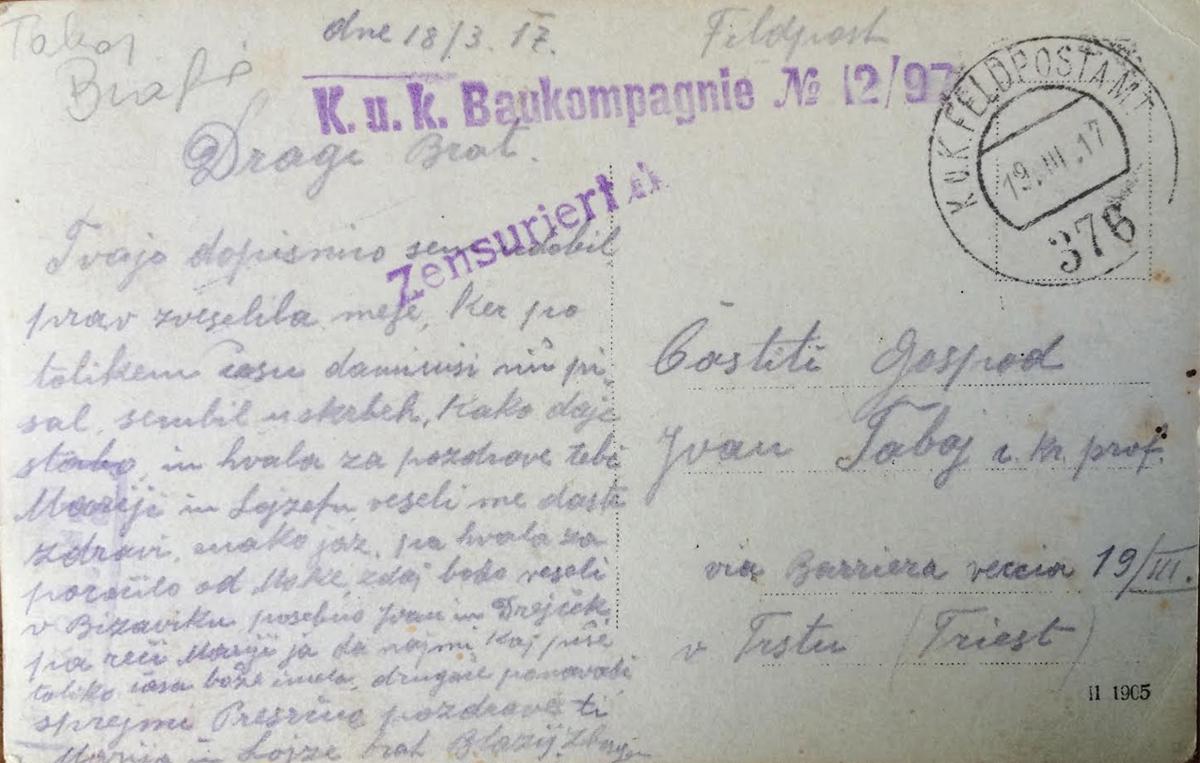
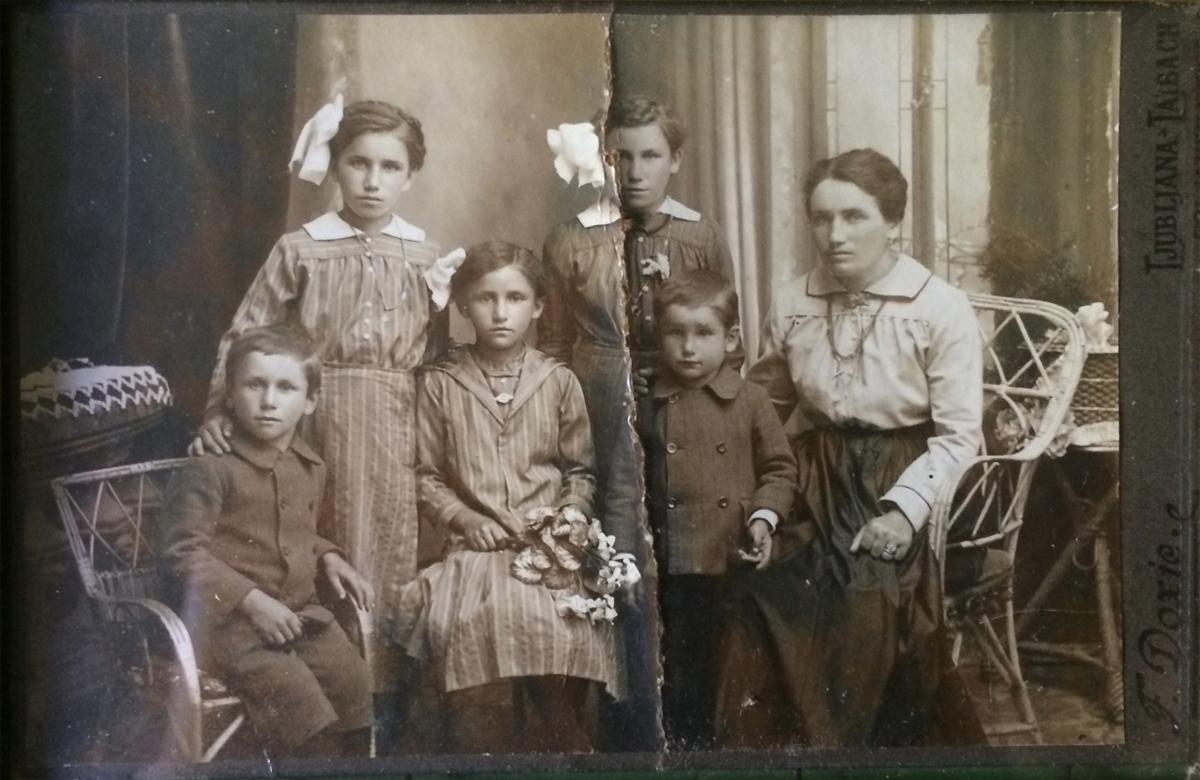
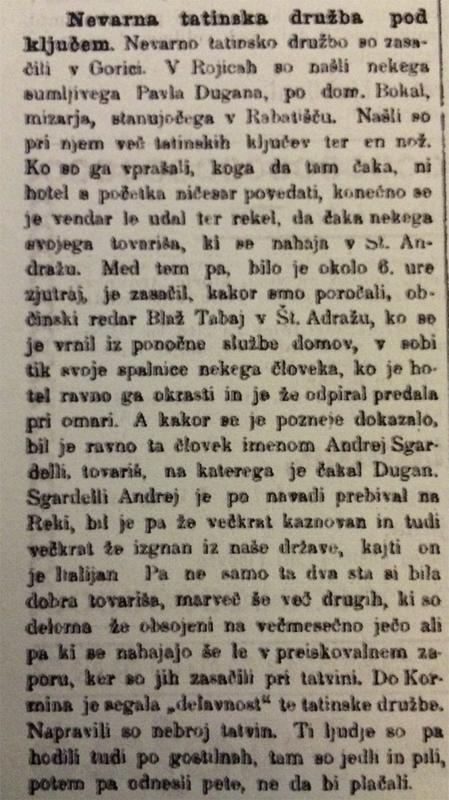
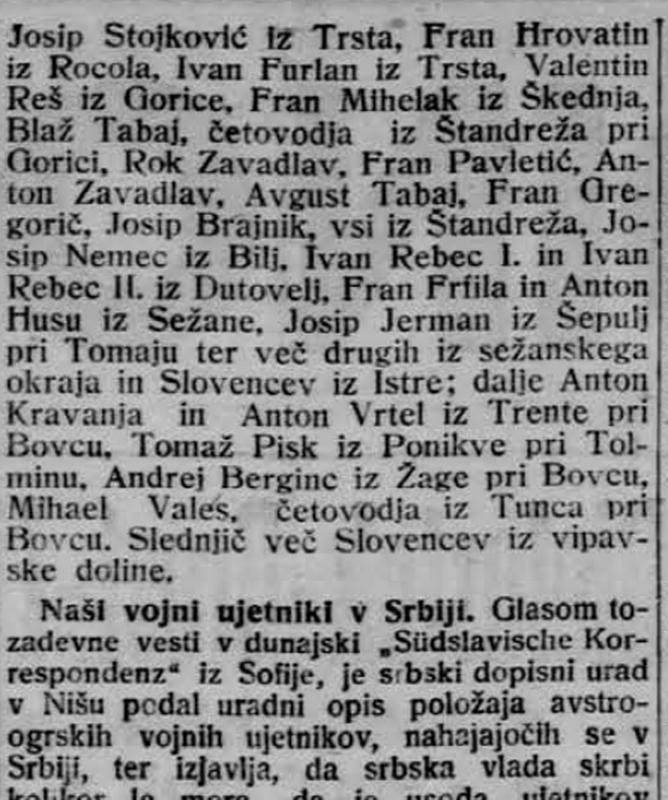
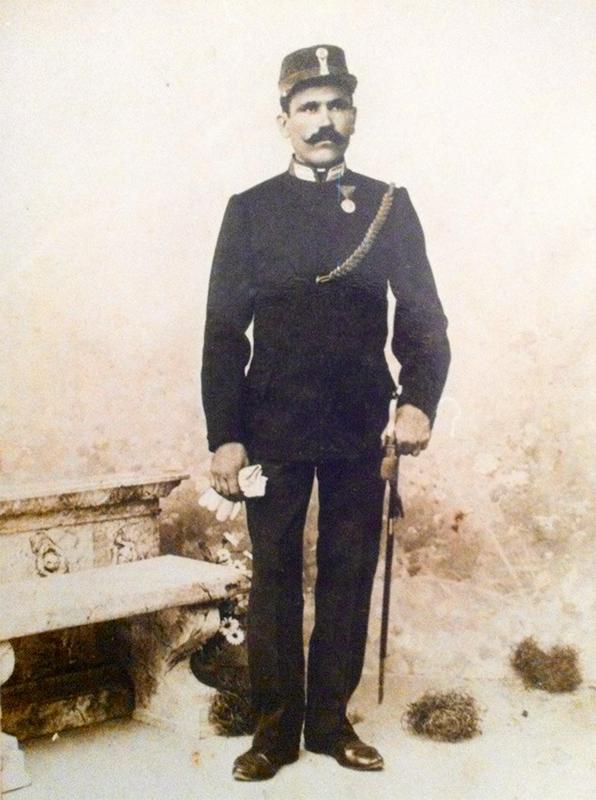
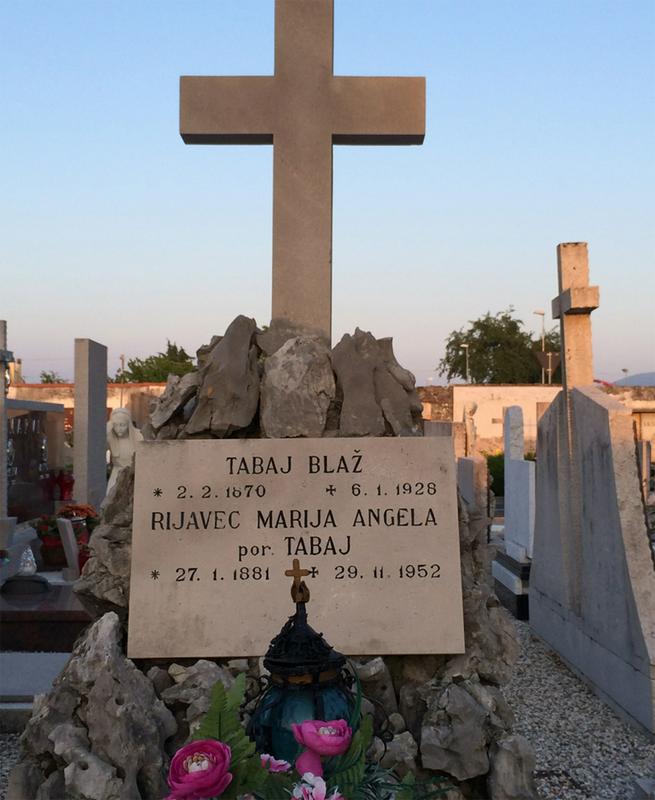
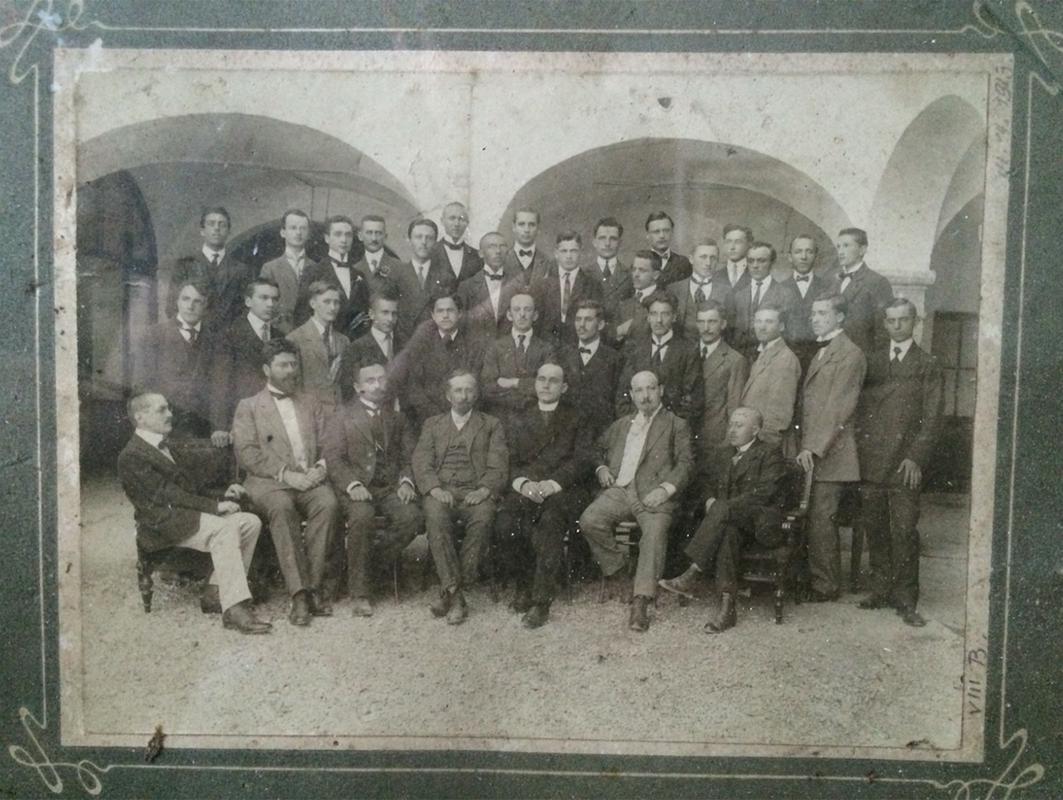
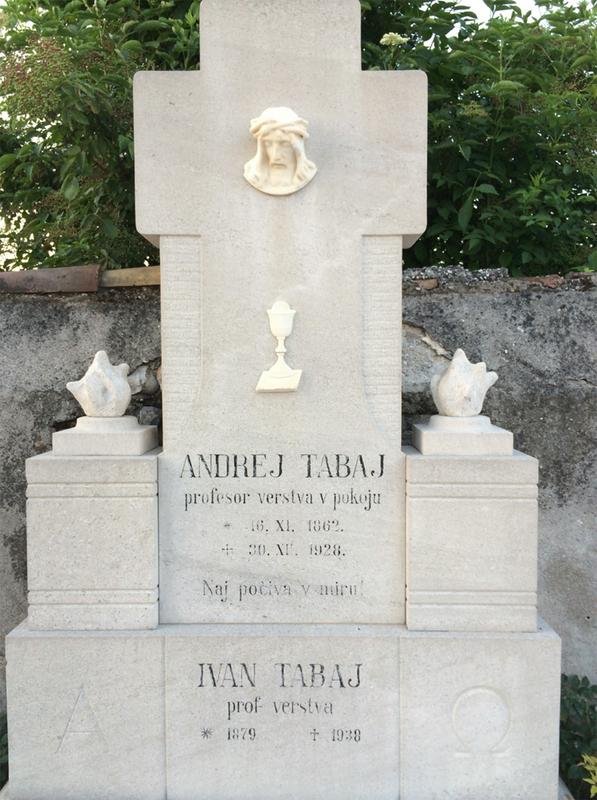
"Dear brother. I have received your postcard, and it has made me very happy. It has been so long since you wrote last time, so I was worried about you. How are you? Thank you, Marija and Lojze for greetings. I am happy you are healthy; so am I."
A lot of words similar to those written as an introduction to the only preserved correspondence between Blaž and Ivan Tabaj, two brothers from Štandrež near Gorica, had been exchanged between the soldiers at the front, and people close to them back home. Blaž sent the postcard on March 18, 1917 with his greetings to his brother and his family, who at that time had moved away from the front. As refugees they moved to Bizovik near Ljubljana, and his message was written, as it was usual at that time, on the back side of his own photograph.
The stamp tells us that Blaž Tabaj (1870-1928) served in the construction unit (K. u. k. Baukompagnie n. 12/97). Although for many young boys mobilization meant their first encounter with arms, Blaž Tabaj had been well familiar with them. He had been a member of the armed police force, and had been doing rounds in Štandrež since March 1905. One of his greatest achievements had probably been the arrest of the “dangerous thieving company” which had been crossing the border from Italy to rob in the Goriška region.
Both the Slovenec newspaper (on September 12, 1901), and the Amerikanski Slovenec (October 4, 1901) reported about the event on the third page. "A suspicious person Pavel Dugan, known locally as Bokal, a carpenter living in Rabatisče, has been found at Rojice. A number of thieving keys has been found in his possession, and a knife. When asked who he had been waiting for he initially refused to answer, but in the end he gave in and admitted he had been waiting for his companion from Št. Andraž. In the meantime the municipal security officer Blaž Tabaj, upon his return home from his night shift, in the room next to his bedroom found a man who was trying to steal from him, and who was already opening the drawers. As it turned out later, that was Andrej Sgardelli, the very person Dugan had been waiting for," was reported in the Slovenec newspaper. Blaž had been also a member of the Reading and singing society in Štandrež since his youth; the reading society had been established there already in 1869.
During the World War I Blaž served as sergeant, or company commander. In 1915 his name occurred again in newspapers – he was mentioned as a “soldier of the territorial army, ‘črnovojnik’ from the hilly Carintha region” who on August 24 published greetings to the Slovenians of Trieste in the Edinost newspaper.
The mentioned letter, which he had closed with cordial greetings to the entire family, had been sent by Blaž serving his national service to his nine years younger brother Ivan Tabaj, a renowned priest and religious instructor at the Gorica State Higher Grammar School. During the First World War Ivan also thought at the Ljubljana Secondary Modern School, he was an official at the archbishop’s office, the prefect of the boy’s seminary in Gorica, and the head of the student’s hostel Alojzijevišče in Gorica.
The end of war, the beginning of Italian hostility
A single preserved letter from the war does not tell enough about the activeness of the Tabaj brothers during that time. They had an older brother, Andrej, who was also a priest. The three brothers lived through the war, but the end of the war didn’t bring peace due to the ever more violent Italian pressure on Slovenians in the Primorska region, and the Tabaj family was no exception.
Blaž, 48 years old in 1918, lived another decade. He and his wife Marija Angela Tabaj (born Rijavec) had children, Andrej (Drejček), Marija, Amalija (Malka), Jožefa (Pepca) and Ivan. Their main source of income was farming, and their quality of life in the post-war impoverished and economically destroyed Goriška region deteriorated, compared to the beginning of the 20th century. The war left consequences on their family house, therefore Blaž in 1920 handed in an application to the District Court of Gorica, which had already been assigned to Italy, requesting a reimbursement for war damages. The requested amount was hardly worth mentioning, probably due to the national awareness of the Tabaj family, which had already placed them on the wrong side of the Italian authorities, and the last straw had probably been Blaž’s decision to compile the request in the Slovenian language only.
Blaž died in 1928 because of stomach ulcer, 57 years old. The same year his brother Andrej died tragically; his national firmness cost him his life. During the years of aggressive Italianisation and denationalizing politics, Ivan hadn’t been spared from fascist oppression either; he had been persecuted constantly. He died in his home village at the age of 60.
As the Italian authorities forbade his burial at the home cemetery, he was initially buried in Gorica. His remains have been transferred to Štandrež only after the World War II. There he lies next to his brother Andrej, and his nephew Andrej – Drejček (Blaž Tabaj’s son). The grandson of Drejček dr. Dimitri Tabaj is in possession of precious family testimonies and is putting together the story of his ancestors.
Dimitri Tabaj sent us the photographs of his great-grandfather and his brothers.

































































